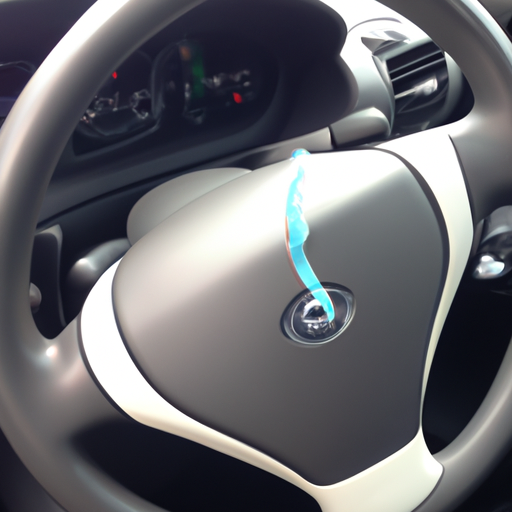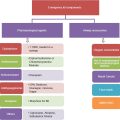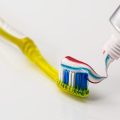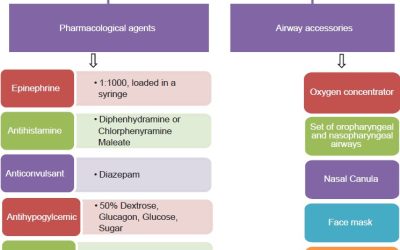So, you’ve woken up with throbbing tooth pain, and you’re desperately in need of some urgent dental care. The question is, can you hop into your car and drive yourself to that much-needed emergency appointment? Well, the short answer is – it depends. While it might seem logical to grab the car keys and head to the dentist, there are a few factors to consider before you buckle up and hit the road. In this article, we’ll explore the various scenarios and provide some guidance on whether it’s safe for you to drive yourself to the emergency dental appointment when you’re in excruciating pain.
Driving with Dental Pain: Assessing the Feasibility
When you are experiencing dental pain, it can significantly impact your daily activities, including driving. The severity of the dental pain, your personal capability to drive, and the legal implications of driving with pain are all important factors to consider before getting behind the wheel. In this article, we will explore these considerations and provide guidance on alternatives to driving, immediate pain management steps, communicating with dental professionals, creating an emergency dental plan, and seeking professional advice to make informed decisions and prioritize your safety and well-being.
Assessing the Severity of the Dental Pain
Before deciding whether it is feasible to drive with dental pain, it is crucial to assess the severity of the pain. Understanding the type of dental pain, evaluating its intensity, and identifying how it may impact your ability to drive are key factors in making an informed decision.
Determining the Type of Dental Pain
Dental pain can manifest in various ways, including toothache, sensitivity, jaw pain, or oral infections. It is important to identify the specific type of dental pain you are experiencing, as this can help determine its underlying cause and the potential risks associated with driving.
Evaluating the Intensity of the Pain
The intensity of dental pain can range from mild discomfort to debilitating agony. Assessing the level of pain you are experiencing is crucial in determining whether you can safely operate a vehicle. Severe pain can be distracting and affect your ability to concentrate on the road, potentially compromising your safety and the safety of others.
Identifying the Impact on Driving
Consider how the dental pain may impact your ability to drive. If the pain is localized to a specific area, such as your jaw or tooth, it may affect your ability to turn your head or chew properly, making it difficult to check blind spots or control the steering wheel. Additionally, the pain itself can be a source of distraction, reducing your focus and reaction time while driving.
Evaluating Personal Capability to Drive
Assessing your personal capability to drive involves considering the influence of pain on focus and concentration, the effect of medications that you may be taking, and any physical limitations you may have.
Assessing the Influence of Pain on Focus and Concentration
Dental pain can be all-consuming, making it challenging to focus on any task, including driving. It is essential to honestly evaluate whether your pain levels would significantly impair your ability to concentrate on the road, react to potential hazards, and maintain adequate situational awareness.
Considering the Effect of Medications
If you are taking pain medications or any other medications to manage dental pain, it is crucial to understand how these medications can affect your driving ability. Some medications may cause drowsiness or other side effects that can impair your cognitive and motor skills, making it unsafe to operate a vehicle.
Evaluating Physical Limitations
In addition to pain and medication effects, any physical limitations resulting from dental pain, such as limited jaw movement or difficulty chewing, should be taken into account. These limitations may affect your ability to maneuver the vehicle or impede your reaction time in emergency situations.
Considering the Legal Implications
Driving with dental pain can have legal implications, as impaired driving due to pain can be considered a traffic violation in many jurisdictions. Understanding relevant traffic laws, the role of pain in impaired driving, and consulting local regulations is crucial to avoid legal consequences.
Exploring Relevant Traffic Laws
Check your local traffic laws to understand if there are any specific regulations related to driving with pain or impaired driving. Familiarize yourself with the legal requirements and consequences associated with violations to ensure you are compliant and avoid potential legal issues.
Understanding the Role of Pain in Impaired Driving
Pain can significantly affect your ability to drive safely. It may lead to decreased focus, concentration, and reaction times, which are essential for safe driving. Understanding the impact of pain on your driving ability can help you make an informed decision about whether it is safe for you to drive with dental pain.
Consulting Local Regulations
Consulting with local authorities or traffic enforcement agencies can provide valuable insights into the specific regulations and guidelines related to driving with dental pain. They can provide clarification on any legal gray areas or exceptions related to emergency situations or seeking medical care.
Alternatives to Driving Yourself
If driving with dental pain is not feasible or advisable for you, there are various alternatives to consider to ensure you can still receive the necessary dental care.
Contacting Emergency Dental Services
In cases of severe dental pain, contacting emergency dental services should be a priority. Many dental clinics have designated emergency lines or after-hours services to address urgent dental issues. Reach out to these services to schedule an emergency appointment and discuss transportation options if you are unable to drive yourself.
Requesting Assistance from Family or Friends
If you are unable to drive due to dental pain, reaching out to family or friends for assistance may be an option. They can help drive you to the dental appointment or provide support in finding alternative transportation methods.
Exploring Public Transportation or Ride-Sharing
Public transportation, such as buses or trains, can be a convenient option if you have access to them. Alternatively, ride-sharing platforms like Uber or Lyft provide a flexible and reliable means of transportation, allowing you to reach your dental appointment safely without having to drive yourself.
Immediate Steps to Manage Dental Pain
While alternative transportation options are being arranged, it is important to manage dental pain effectively to alleviate immediate discomfort.
Simple At-Home Remedies to Relieve Discomfort
There are several simple at-home remedies that can help temporarily relieve dental pain. Rinsing your mouth with warm saltwater or applying a cold compress to the affected area can provide temporary relief. Over-the-counter dental pain relievers or topical gels may also help manage the pain until you can seek professional dental care.
Using Over-the-Counter Pain Medications
Over-the-counter pain medications, such as acetaminophen or ibuprofen, can be useful in managing dental pain. Follow the recommended dosage instructions and consult with a pharmacist or dental professional if you have any concerns or questions about their use.
Considering Emergency Home Visits
In some cases, dental professionals may offer emergency home visits, particularly for patients with severe pain or mobility limitations. Contacting your dental clinic to inquire about the availability of home visits can provide you with an opportunity to receive the necessary care without having to leave your home.
Communicating with Dental Professionals
Maintaining open communication with dental professionals is crucial when experiencing dental pain. They can provide guidance, discuss pain management strategies, and explore telehealth options to ensure you receive appropriate care.
Contacting the Dental Clinic for Guidance
If you are unsure about the severity of your dental pain or the best course of action, contacting your dental clinic can provide valuable guidance. Dental professionals can assess your situation over the phone and advise whether immediate treatment is necessary or if it can be managed with at-home remedies until a dental appointment can be scheduled.
Discussing Pain Management Strategies
Dental professionals can offer valuable insight into pain management strategies specific to your situation. They can recommend pain medications, provide instructions on proper usage, and suggest additional methods for alleviating dental pain.
Exploring Telehealth Options
Telehealth or virtual consultations can be a convenient way to communicate with dental professionals and receive advice without physically going to the clinic. Some dental practices offer telehealth services, allowing you to discuss your dental concerns, receive recommendations, and determine the best course of action without leaving your home.
Creating an Emergency Dental Plan
To better prepare for future dental emergencies and alleviate any stress or complications that may arise, creating an emergency dental plan is essential.
Preparing for Future Dental Emergencies
Dental emergencies can occur unexpectedly, so it is important to prepare for such situations. Educate yourself on common dental emergencies, have a basic understanding of first aid for dental injuries, and keep necessary contact information readily available.
Maintaining a List of Emergency Contacts
Create a list of emergency contacts that includes your regular dentist, emergency dental services, family or friends who can assist in transportation, and any other relevant numbers. Keep this list easily accessible so that you can quickly reach out for assistance when needed.
Keeping Essential Supplies at Hand
Having essential dental supplies at hand can be beneficial, especially during a dental emergency. Consider keeping items such as sterile gauze, dental wax, and over-the-counter pain relievers in an easily accessible emergency dental kit.
Seeking Professional Advice
When it comes to making decisions regarding dental pain and driving, seeking professional advice is crucial. Consulting a dentist, asking for input from medical professionals, and following individualized recommendations can help you navigate the complexities of managing dental pain effectively.
Consulting a Dentist
A dentist is the ultimate authority when it comes to addressing dental pain and providing appropriate treatment options. Schedule an appointment to discuss your concerns, undergo a thorough examination, and obtain personalized advice on managing your dental pain.
Asking for Input from Medical Professionals
In some cases, consulting with medical professionals such as your primary care physician or a pain management specialist may be necessary. They can assess the impact of pain and medications on your overall well-being and provide additional guidance on managing pain while maintaining safety.
Following Individualized Recommendations
Every case of dental pain is unique, and individualized recommendations from dental and medical professionals should be followed for optimal results. They can provide specific advice on pain management, driving restrictions, and alternative transportation options to ensure your safety and well-being.
Conclusion
When faced with dental pain, assessing its severity, evaluating personal capability to drive, and considering the legal implications are crucial steps in determining the feasibility of driving yourself to a dental appointment. If driving is not advisable, exploring alternatives such as emergency dental services, assistance from family or friends, or public transportation can help ensure access to necessary care. Managing dental pain through at-home remedies and over-the-counter medications can provide temporary relief while arrangements are made. Communicating with dental professionals, creating an emergency dental plan, and seeking professional advice are essential for making informed decisions and prioritizing your safety and well-being. By weighing the risks and benefits and consulting with dental and medical professionals, you can navigate dental pain in a responsible and safe manner.












